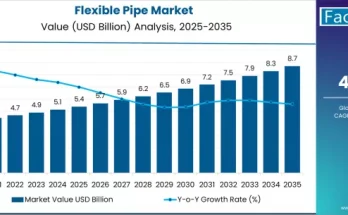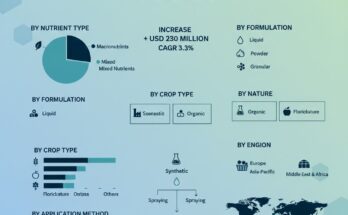Fabric conditioners have become an indispensable part of our laundry routines, adding a touch of softness, freshness, and fragrance to our clothes. As the demand for fabric care products continues to rise, the fabric conditioner industry is experiencing significant growth and evolving to cater to the changing needs and preferences of consumers. This article explores the complete outlook of fabric conditioners and the thriving business opportunities in this dynamic market.
Growing Consumer Awareness
One of the key factors driving the fabric conditioner industry is the increasing consumer awareness regarding the benefits of using fabric conditioners. Consumers have come to appreciate the softness and enhanced wearing comfort that fabric conditioners provide to their clothes. Additionally, fabric conditioners help reduce wrinkles, static cling, and make ironing easier. As consumers seek to elevate their laundry experience, fabric conditioners have emerged as a must-have product in their laundry arsenal.
Innovation and Customization
To stay competitive in the market, fabric conditioner manufacturers are focusing on innovation and customization. They are developing advanced formulations that not only soften fabrics but also offer additional benefits such as color protection, stain resistance, and long-lasting freshness. Furthermore, manufacturers are introducing a wide range of fragrances and offering options for different fabric types, catering to the diverse preferences and needs of consumers.
Sustainability and Eco-Friendliness
With the growing emphasis on sustainability, fabric conditioner manufacturers are making conscious efforts to develop eco-friendly and sustainable products. They are incorporating biodegradable ingredients and reducing the use of harmful chemicals in their formulations. Additionally, companies are adopting eco-friendly packaging solutions and promoting recycling initiatives to minimize their environmental impact. This commitment to sustainability not only aligns with consumer values but also opens doors to new market segments.
Expanding Market Potential
The fabric conditioner market holds immense potential for growth, both in developed and emerging economies. Rising disposable incomes, urbanization, and changing consumer lifestyles are driving the demand for fabric conditioners globally. Moreover, the increasing adoption of washing machines and laundry appliances in developing countries is expected to fuel the market further. Manufacturers can tap into this potential by expanding their distribution networks, leveraging e-commerce platforms, and strengthening partnerships with retailers to reach a wider customer base.
According to Fact.MR, the global fabric conditioner market is projected to reach US$ 14.02 billion by 2033.
Find out what factors are driving the sales & increasing profit margins, along with category & country-wise data through our detailed report on global fabric conditioners.
The expanding market potential of fabric conditioners can be attributed to factors such as:
1. Increasing disposable incomes: Rising incomes in both developed and emerging economies have led to an increase in consumer spending on household products, including fabric conditioners.
2. Urbanization and changing lifestyles: Urbanization has resulted in smaller living spaces and a higher reliance on washing machines and laundry appliances. As a result, the demand for fabric conditioners has grown as consumers seek to enhance their laundry experience.
3. Growing awareness and adoption in emerging markets: Emerging economies, such as India, China, and Brazil, are witnessing a surge in the adoption of washing machines and laundry appliances. This trend presents a significant market opportunity for fabric conditioner manufacturers to tap into these expanding consumer bases.
4. Increasing demand for convenience: Busy lifestyles and time constraints have led to a growing demand for convenient laundry solutions. Fabric conditioners offer a quick and easy way to soften and freshen clothes, making them an attractive option for time-conscious consumers.
5. Expanding distribution channels: The availability of fabric conditioners through various distribution channels, including supermarkets, convenience stores, online platforms, and specialized retailers, has contributed to the market’s expansion. This accessibility has made it easier for consumers to purchase fabric conditioners, further driving the market’s growth.
6. Rising consumer awareness and preference for fabric care: Consumers are becoming more conscious about the importance of fabric care and the benefits of using fabric conditioners. They seek products that provide softness, fragrance, and added benefits like color protection or stain resistance. This growing awareness and preference for fabric care products have fueled the demand for fabric conditioners in the market.
Brand Loyalty and Customer Engagement
Building brand loyalty and establishing a strong connection with consumers is vital in the fabric conditioner business. Manufacturers are investing in effective marketing strategies, including social media campaigns, influencer collaborations, and engaging advertisements to create brand awareness and connect with their target audience. Moreover, they are focusing on providing exceptional customer service and personalized experiences to foster long-term relationships with consumers.
Conclusion
The fabric conditioner industry is witnessing a remarkable growth trajectory, driven by consumer awareness, innovation, sustainability, and expanding market potential. As the demand for fabric care products continues to rise, manufacturers have an opportunity to capture a significant market share by offering innovative, sustainable, and customized fabric conditioners. By staying attuned to evolving consumer preferences, investing in research and development, and building strong brand loyalty, businesses can thrive in this dynamic market and meet the ever-growing demand for fabric conditioners.
Also Read:
- Growing Momentum in the Adoption of Chemical Recycling
- Soaring Demand for Cosmetic Chemicals: A Booming Market Opportunity by 2032



